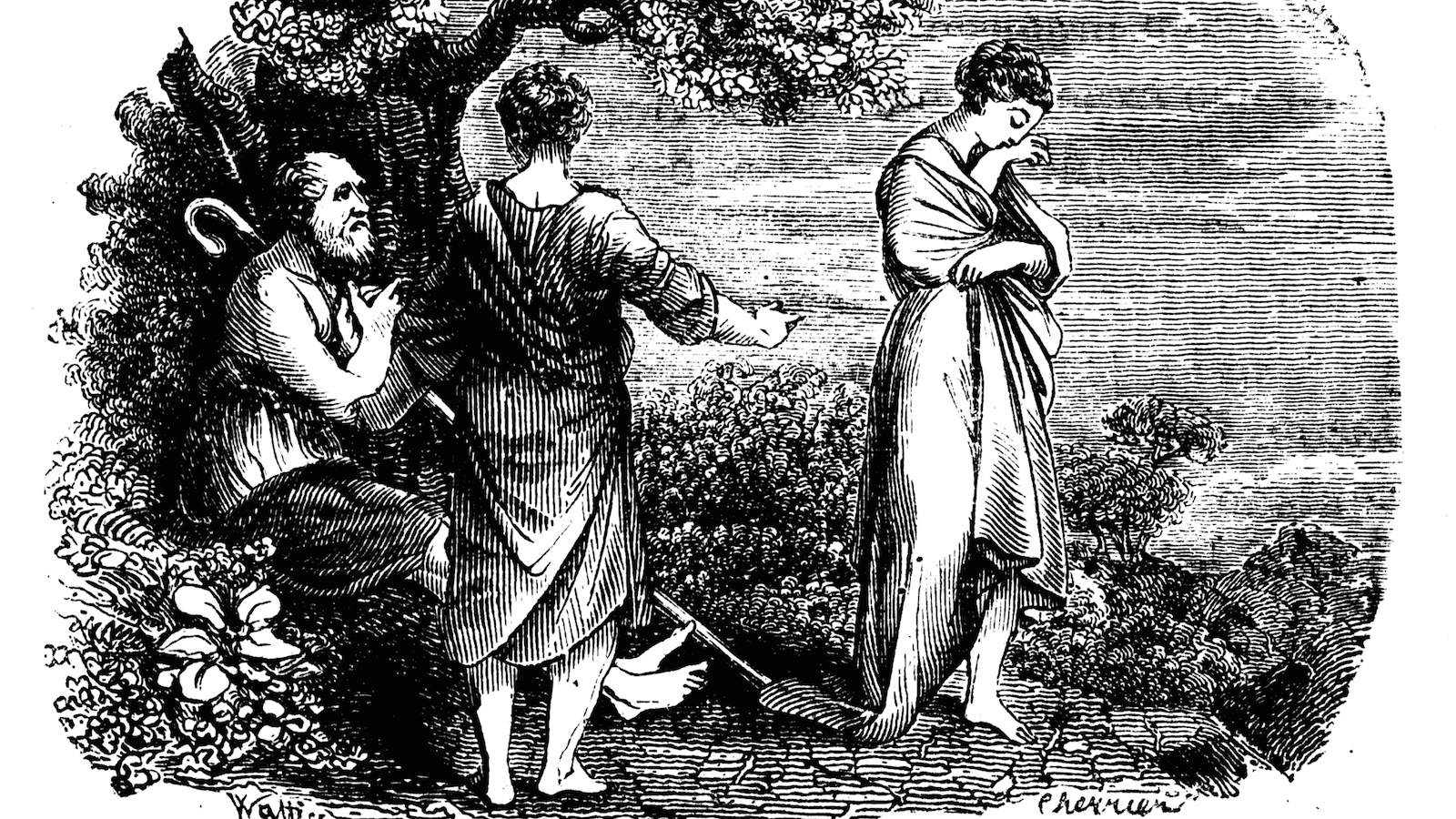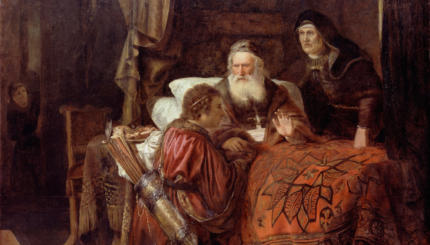Commentary on Parashat Vayetzei, Genesis 28:10-32:3
‘Why do bad things happen to good people?’ is a question that almost all of us have been plagued by at some time. It is probably one of the most pressing theological issues of all time, one that apparently has no universally satisfying solution. Despite that, a hint of a very partial answer may be found in this week’s Torah portion.
The night that our forefather Jacob has been eagerly anticipating has arrived. For seven years he has toiled in the house of Laban for the right to marry the family’s youngest daughter Rachel. But he is duped, and upon waking in the morning he discovers that the woman he has wed is not his beloved Rachel, but rather Laban’s oldest daughter, Leah. Jacob confronts his father-in-law with angry words: “What is this you have done to me? I worked with you for Rachel! Why did you deceive me?” But Laban is not one to back down or admit guilt. A ready answer is on his lips: “It is not the practice in our place to put the younger before the older.”
The accusation that is heard between the lines is a biting one indeed. In your place the younger may be put before the elder, but heaven forbid that such inappropriate behavior be condoned in our neck of the woods.
And the memories of those oh-so-difficult events of over seven years ago flood back into the consciousness of Jacob, memories he had been so valiantly trying to suppress. How his mother prevailed upon him, the younger son, to impersonate his older brother Esau and thereby obtain from his blind and aging father Isaac the blessing usually reserved for the firstborn. How he went in to his beloved father and lied to him, answering the question “Who are you?” with the words “I am Esau your firstborn.” How his father trembled, and his brother cried out in anguish, when the treachery became known. And how his enraged brother vowed to kill him, and he was forced to flee from home for his very life. And now Jacob’s head is spinning; he is stung to the core. The past has come back to
haunt him.

Help us keep Jewish knowledge accessible to millions of people around the world.
Your donation to My Jewish Learning fuels endless journeys of Jewish discovery. With your help, My Jewish Learning can continue to provide nonstop opportunities for learning, connection and growth.
This is exactly the type of thing that our ancient sages called “measure for measure.” He dished it out, and he got it back. The deceiver has been deceived. The younger who usurped the position of the elder, has been given the elder when it is the younger that he so greatly longed for.
But this is much more than punishment. It has all the makings of tragedy, for Jacob had done what he did only for the sake of heaven. His motives, according to various texts, were nothing if not pure. He and his mother Rebecca were convinced, and justifiably so, that Esau was not fit to receive the blessing that Isaac was apparently bent upon giving him. Esau was an impulsive type, concerned only with the here and now; he sold his birthright for a bowl of porridge only because he was ravenously hungry at the moment. He was a bit animal-like in the way that he gobbled down his food. And he did the unthinkable by marrying a local Canaanite woman, something that Abraham had sternly warned against and that caused great anguish to Isaac and Rebecca.
Rebecca and Jacob were, according to Midrash, certain that the future of the Jewish people depended upon them taking this radical step. Jacob betrayed his father’s confidence for the noblest reason possible.
And indeed it may well be that his lying and deception were justified … and still the consequences will follow him until his dying day. This is what the refers to as a “transgression for noble ends,” concerning which the great master Rebbe Tzadok Hacohen of Lublin opines that it nevertheless requires atonement. Yes, under certain very proscribed circumstances the ends justify the means. The very nature of the divinely created reality in which we live is that sometimes un-kosher methods must be employed to attain the most exalted of ends. But no matter how inescapable and mandated such a course of action may be, still there is a price to be paid.
Evil taints those who practice it. It pollutes those who resort to it, even when it is the most righteous path available. To bring the most radical example, the impurity of death clings even to those who kill in self-defense. The horrors of war haunt even those who shed blood in the most righteous of wars.
We still live in an unredeemed world in which evil must oftentimes be opposed with evil. To remain above the fray is not acceptable. Jacob must fend off Esau even when it means adopting strategies that he would personally recoil from. The ends do sometimes justify the means. But we still must pay the price. And we all do. We all do.



